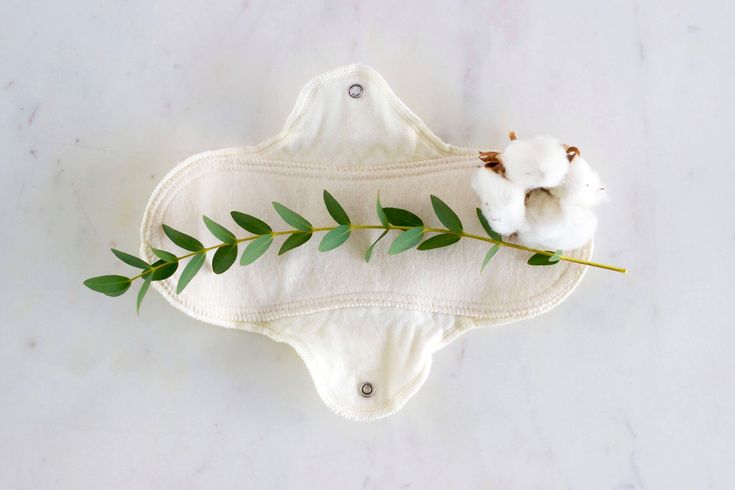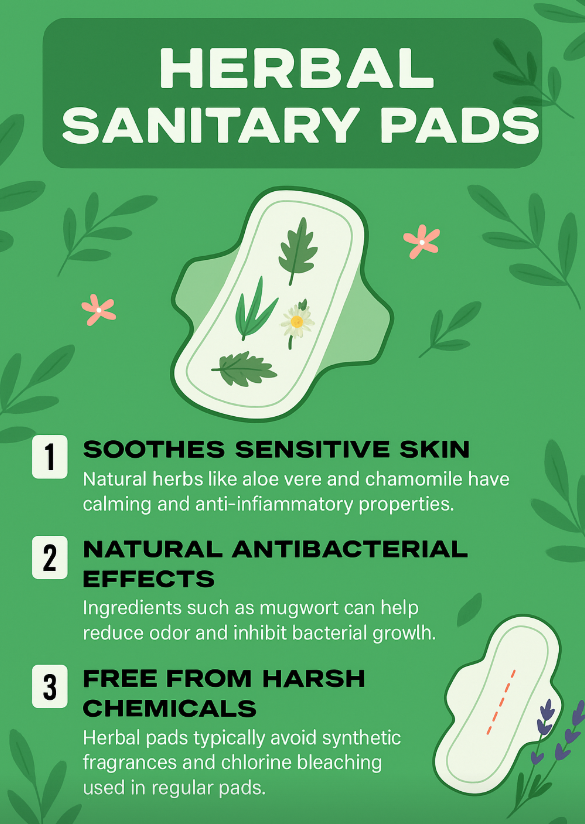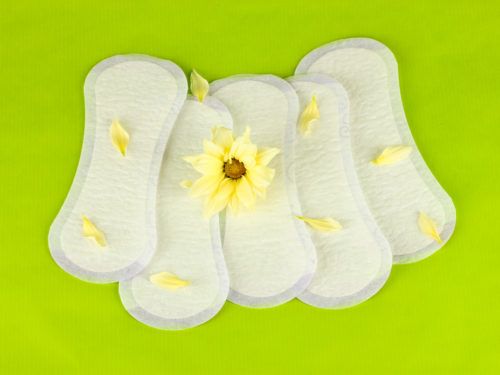Table of Contents
Introduction: The Herbal Pad Hype—Natural Relief or Hidden Risk?
If you have sensitive skin, you’ve likely been told to stay away from synthetic fragrances, dyes, and harsh materials in menstrual products. That’s why herbal sanitary pads—infused with plant-based ingredients like mugwort, chamomile, and aloe vera—are gaining popularity.
These pads are marketed as anti-inflammatory, breathable, and even soothing during your period. But are they actually safe for delicate skin? Do the natural herbs really help—or could they trigger new problems?
Let’s explore what herbal pads are made of, what the research says, who should (and shouldn’t) use them, and how to choose one that works with your body—not against it.

What Are Herbal Sanitary Pads?
Herbal sanitary pads are menstrual products that contain natural plant extracts either in the absorbent layer or as a cooling sheet on the surface. They aim to offer anti-bacterial, anti-inflammatory, or deodorizing effects—without synthetic chemicals.
🌿 Common Herbal Ingredients Include:
Mugwort (Artemisia) – said to have antibacterial and soothing properties
Chamomile – reduces inflammation, calming to the skin
Aloe Vera – moisturizes and soothes irritated areas
Lavender or Mint – offers a cooling effect but can be irritating to some
Tea Tree Oil – antifungal but often too strong for sensitive skin
While these herbs sound gentle, their essential oil forms or strong concentrations may trigger allergic reactions or discomfort—especially for sensitive users.
Are Herbal Sanitary Pads Safe for Sensitive Skin?

Herbal sanitary pads are designed to offer soothing relief using natural ingredients like chamomile and aloe vera, while avoiding common irritants such as chlorine and synthetic fragrances. Their breathable, plant-based materials make them a popular choice for those with sensitive skin. However, not all herbs are gentle—ingredients like lavender or tea tree oil may trigger allergic reactions or discomfort. Additionally, the lack of strict regulation means some products may not fully disclose their contents. Dermatologists advise patch-testing new products, as even natural formulas can cause irritation if not properly balanced.
Top Herbal Sanitary Pad Brands to Know
Here are some popular brands offering herbal-infused pads, with a note on whether they may suit sensitive skin:
| Brand | Herbal Ingredients | For Sensitive Skin? | Notes |
|---|---|---|---|
| Rael | Chamomile, mint, lavender | ❌ Too cooling for some | Herbal cooling sheet layer |
| Azah | Mugwort | ✅ Gentle formula | Dermatologist-tested |
| Heyday | Bamboo + herbs | ✅ Bamboo-based core | Soft and breathable |
| Purganics | Organic + herbal blend | ✅ Unscented, organic | Suitable for sensitive skin |
| OK Pads | Mugwort, mint, tea tree | ❌ Tea tree may irritate | Good for oily skin types |
| Nua | Non-herbal, cotton base | ✅ Safe alternative | Good for hyper-sensitive skin |
📝 Tip: Always read the full ingredient list and avoid pads that simply say “herbal blend” without specifying what’s inside.
Herbal Pads vs Regular Pads: Comparison Chart
| Feature | Herbal Sanitary Pads | Regular Pads |
|---|---|---|
| Ingredients | Plant-based, some essential oils | Synthetic fibers, fragrances |
| Fragrance | Natural (sometimes strong) | Often artificial and perfumed |
| For Sensitive Skin | Variable – test recommended | Usually not ideal |
| Price | Moderate to High | Low to Moderate |
| Cooling Effect | Present in some pads | Rare |
| Environmental Impact | Often biodegradable | Mostly non-compostable |
Who Should Use Herbal Pads—and Who Should Avoid Them?
Best For:
Women with mild sensitivity to perfumes but no history of plant-based allergies
Users seeking natural and eco-friendly options
Those who prefer cooling sensations during periods
Avoid If:
You have a history of skin allergies, eczema, or dermatitis
You’ve had bad reactions to essential oils like mint or lavender
You’re experiencing any burning, itching, or discomfort after use
Pro tip: If it tingles too much—it’s not soothing, it’s irritating.

How to Choose a Safe Herbal Pad (Especially If You Have Sensitive Skin)
✅ Look for “unscented” and “dermatologically tested” on the label
✅ Choose pads with full ingredient transparency (avoid vague “herbal essence”)
✅ Prefer pads with soothing herbs only (chamomile, aloe vera)
🚫 Avoid tea tree oil or strong menthol if you’re prone to irritation
✅ Check for certifications like CE, FDA, or ISO
Conclusion: Should Sensitive-Skin Users Trust Herbal Pads?
Herbal sanitary pads can be a great alternative—if chosen carefully. They offer natural relief, fewer synthetic chemicals, and sometimes even environmental benefits. But “herbal” doesn’t always mean “safe”—especially for sensitive skin.
If you want to try herbal pads, look for:
Gentle herbs like chamomile or aloe vera
Full ingredient transparency
Third-party safety certifications
And always do a patch test before switching your entire routine.

